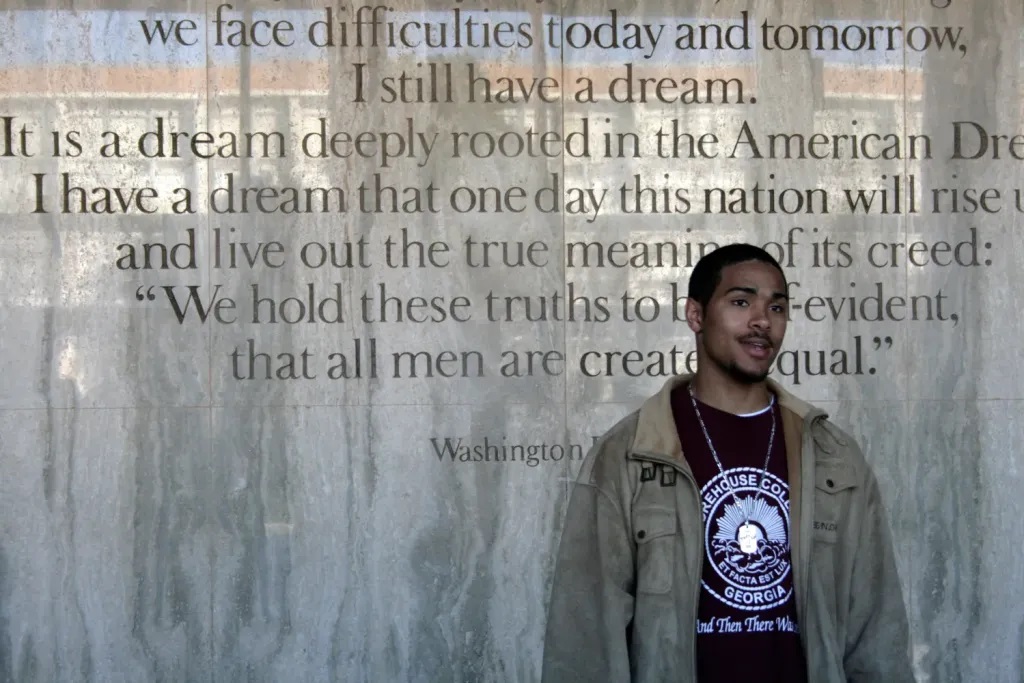
HBCUs have long been pillars of educational excellence and economic engines, driving prosperity in their communities and across the nation. Despite these contributions, chronic underfunding threatens their ability to sustain this impact.
“Transforming Futures: The Economic Engines of HBCUs” underscores the urgent need for equitable and sustainable funding to ensure HBCUs can continue their vital role in promoting social mobility and economic growth and calls on the public to advocate for these essential institutions.
“As UNCF observes its 80th anniversary, one of the highlights of our yearlong celebration is the release of the sequel to our groundbreaking 2017 report. This report reaffirms what we have always known about the resilience of HBCUs: Despite a deadly pandemic, social unrest caused by the murders of George Floyd and Breonna Taylor, and the economic uncertainties of the past seven years, HBCUs continue to do more with less — not only in preparing the next generation of leaders but also in contributing to our nation’s economic impact,” said Dr. Michael L. Lomax, president and CEO of UNCF.
“At this critical moment…we all must immediately actualize our commitment to these cornerstone institutions.”
Key findings in the “2024 HBCU Economic Impact Report” include:
- HBCUs generate $16.5 billion in direct economic impact nationally.
- If they were a company, the nation’s HBCUs would place in the top 50 of the nation’s Fortune 500 companies in job creation.
- Collectively, 136,048 jobs exist because of HBCUs.
- On average, for each job created on campus, 1.5 off-campus jobs exist because of spending related to the institution.
- HBCUs are far more accessible to students and more successful at moving students from the bottom 40% of a country’s income distribution to the top 60%, signaling social mobility.
- The 51,269 HBCU graduates in the class of 2021 can expect work-life earnings of $146 billion, 57% ($53 billion) more than the $93 billion they could expect without their degrees or certificates.
The “2024 HBCU Economic Impact Report” is a continuation of the landmark 2017 study ”HBCUs Make America Strong: The Positive Economic Impact of Historically Black Colleges and Universities,” which showed that HBCUs’ economic benefits extend beyond the students they educate.
In addition to the comprehensive report, a website has been launched where users can explore state-specific data and insights for individual HCBUs. This resource allows users to explore the localized impact, emphasizing the critical role HBCUs play in communities across the nation.
This report “represents the latest chapter in a longitudinal research initiative by UNCF’s Frederick D. Patterson Research Institute,” said Dr. Nadrea R. Njoku, assistant vice president of Frederick D. Patterson Research Institute, UNCF. “By leveraging robust methodology and extensive data, we highlight how HBCUs continue to be critical drivers of economic growth and social mobility.
“This report not only underscores the substantial economic benefits generated by HBCUs, but also contextualizes the broader challenges they have faced over the past three years, including the far-reaching impacts of the COVID-19 pandemic and the threats of violence that have been levied against many of these institutions,”said Dr. Njoku.
“Now, more than ever, we must recognize the indispensable role HBCUs play in shaping not just the future of their students but the future of our nation,” said Lodriguez Murray, senior vice president of public policy and government affairs at UNCF. “This report is not just a call to awareness but a call to action.
“As we move forward, it is imperative that we leverage this data to galvanize our communities and demand the necessary support from our policymakers by voting for HBCUs. We urge every supporter to make their voices heard, to advocate for the equitable funding our HBCUs deserve, and to ensure that these institutions can continue to thrive and contribute to America’s future.”
Roy Betts is a writer-editor with the United Negro College Fund Special Programs Corporation and a former White House correspondent.
This article originally appeared in the Minnesota Spokesman Reporter.
The post HBCUs keep doing more with less appeared first on New Pittsburgh Courier.

